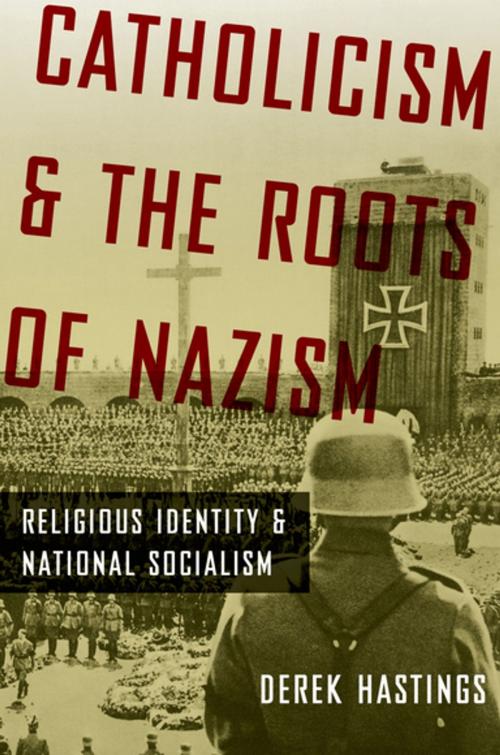Catholicism and the Roots of Nazism
Religious Identity and National Socialism
Nonfiction, Religion & Spirituality, Christianity, Church, Church History, History, Germany, Social & Cultural Studies, Political Science, Politics, History & Theory| Author: | Derek Hastings | ISBN: | 9780199889242 |
| Publisher: | Oxford University Press | Publication: | December 18, 2009 |
| Imprint: | Oxford University Press | Language: | English |
| Author: | Derek Hastings |
| ISBN: | 9780199889242 |
| Publisher: | Oxford University Press |
| Publication: | December 18, 2009 |
| Imprint: | Oxford University Press |
| Language: | English |
Derek Hastings here illuminates an important and largely overlooked aspect of early Nazi history, going back to the years after World War I--when National Socialism first emerged--to reveal its close early ties with Catholicism. Although an antagonistic relationship between the Catholic Church and Hitler's regime developed later during the Third Reich, the early Nazi movement was born in Munich, a city whose population was overwhelmingly Catholic. Focusing on Munich and the surrounding area, Hastings shows how Catholics played a central and hitherto overlooked role in the Nazi movement before the 1923 Beerhall Putsch. He examines the activism of individual Catholic writers, university students, and priests and the striking Catholic-oriented appeals and imagery formulated by the movement. He then discusses why the Nazis embarked on a different path following the party's reconstitution in early 1925, ultimately taking on an increasingly anti-Catholic and anti-Christian identity.
Derek Hastings here illuminates an important and largely overlooked aspect of early Nazi history, going back to the years after World War I--when National Socialism first emerged--to reveal its close early ties with Catholicism. Although an antagonistic relationship between the Catholic Church and Hitler's regime developed later during the Third Reich, the early Nazi movement was born in Munich, a city whose population was overwhelmingly Catholic. Focusing on Munich and the surrounding area, Hastings shows how Catholics played a central and hitherto overlooked role in the Nazi movement before the 1923 Beerhall Putsch. He examines the activism of individual Catholic writers, university students, and priests and the striking Catholic-oriented appeals and imagery formulated by the movement. He then discusses why the Nazis embarked on a different path following the party's reconstitution in early 1925, ultimately taking on an increasingly anti-Catholic and anti-Christian identity.















